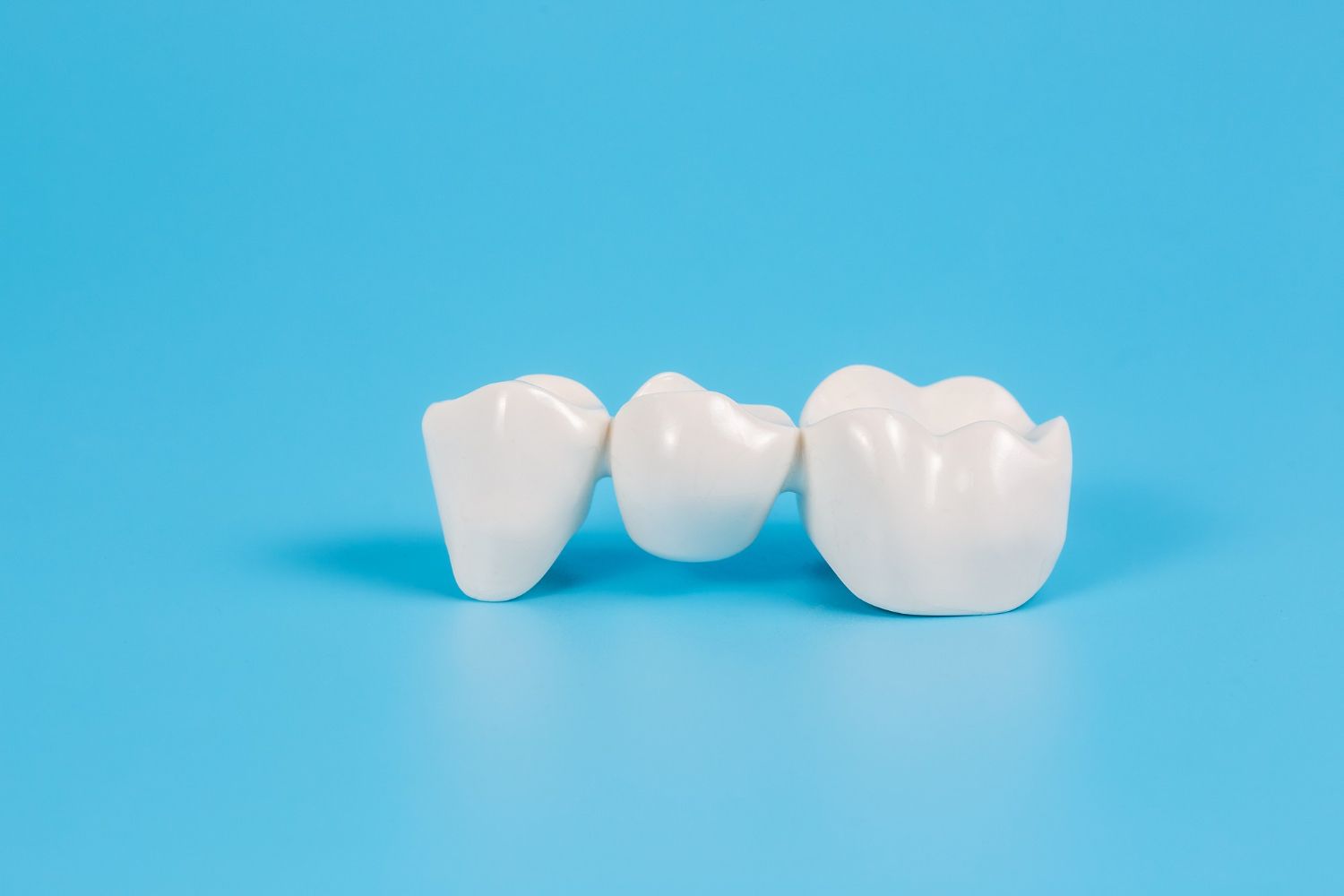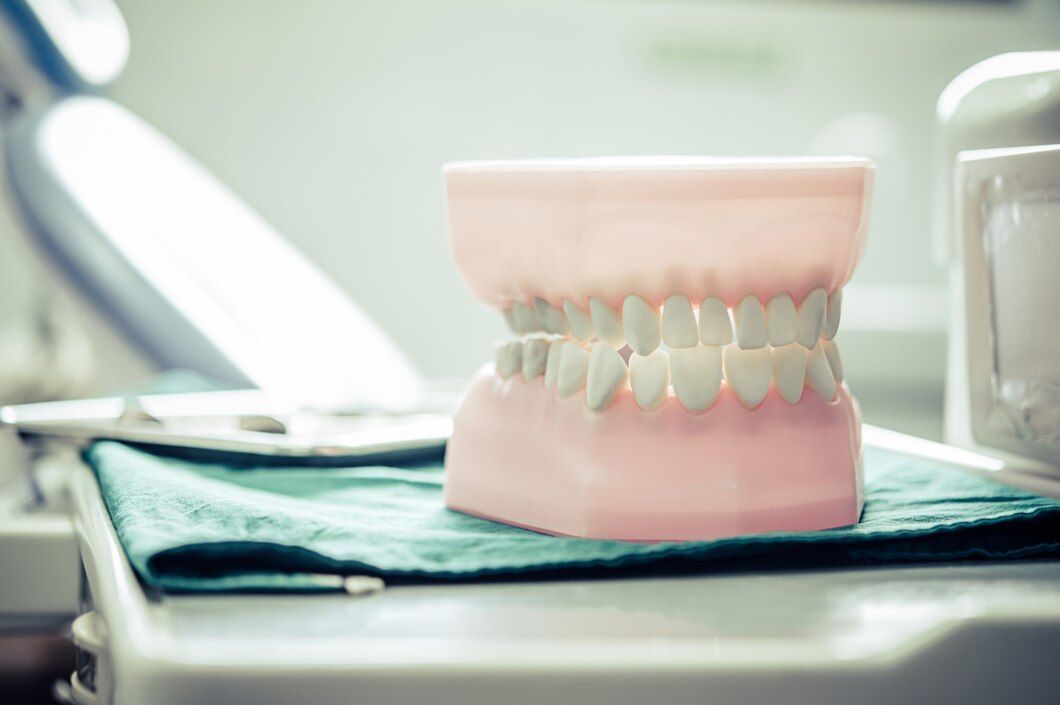Discover How Dental Crowns Can Save and Restore Your Smile
Do you have a damaged or weak tooth? Dental crowns might be the perfect solution for you. These caps placed over teeth can bring both health and beauty back to your smile. They protect your teeth and help you chew and speak properly. This guide will detail how dental crowns work and the benefits they offer.
Crowns are custom-made to fit your tooth, making your tooth stronger and restoring its shape. They can be made from different materials to match your natural teeth. Besides protecting and strengthening your tooth, a crown can also improve how your tooth looks, making your smile look even better.
What Are Dental Crowns?
Definition and Purpose
Dental crowns are protective caps placed over damaged or weakened teeth. They restore the shape, size, and function of the tooth and can improve its appearance. Crowns are designed to look just like natural teeth, ensuring that your smile remains seamless. The main purpose of a dental crown is to strengthen a tooth that can't support a filling or needs added protection.
Types of Dental Crowns
There are different types of dental crowns to choose from, each made from various materials:
- Porcelain Crowns: These are popular because they look very natural. Porcelain crowns are ideal for front teeth and those visible when you smile.
- Metal Crowns: Made from gold or other metal alloys, these crowns are very durable and long-lasting. However, they are more noticeable and typically used for back teeth.
- Porcelain-Fused-to-Metal Crowns: These combine the natural look of porcelain with the strength of metal. They offer both durability and a more natural appearance.
- All-Resin Crowns: These are more affordable, but they wear down faster and are more prone to fractures.
Choosing the right type of crown depends on your needs, preferences, and the location of the tooth that needs the crown.
Common Reasons You Might Need a Dental Crown
Protecting a Weakened Tooth
Teeth can become weakened due to decay, large fillings, or cracks. A dental crown can protect these weakened teeth from breaking further. By covering the tooth, a crown provides a new outer surface that adds strength and stability. This protection helps you avoid more severe dental problems in the future.
Restoring a Broken or Worn Tooth
If you have a tooth that is broken or severely worn down from grinding, a crown can restore its shape and function. Crowns cover and encapsulate the damaged tooth, making it look and work like a normal tooth again. This restoration is especially important for maintaining your ability to chew and speak properly.
Covering and Supporting a Tooth with a Large Filling
Sometimes, a tooth has a large filling with not much natural tooth structure left. This can make the tooth weak and vulnerable to further damage. A crown is the best solution in such cases because it covers and supports the tooth, providing full restoration and protection. Crowns give a long-term solution, ensuring the tooth remains intact and functional.
Choosing a dental crown can save your tooth from extraction, keep your smile beautiful, and ensure you can continue eating and speaking comfortably.
Advantages of Dental Crowns
Durability and Longevity
Dental crowns are known for their durability and long lifespan. When properly cared for, crowns can last between 10 to 15 years or even longer. Materials like porcelain, metal, and ceramic used in making crowns are strong and resistant to wear. This makes crowns a reliable option for restoring damaged teeth and ensuring they stay functional over the years. Regular dental check-ups can help maintain their longevity and keep them in optimal condition.
Aesthetic Improvements
One of the greatest benefits of dental crowns is the improvement they bring to your smile. Crowns are custom-made to match the color, shape, and size of your natural teeth. Whether it's a front tooth or a molar, a crown can blend seamlessly with your other teeth. This not only enhances your smile but also boosts your confidence. You can enjoy a natural-looking smile without concerns about visible dental repairs.
Protection and Functionality
Crowns offer excellent protection for weakened or damaged teeth. By covering the entire visible part of a tooth, a crown shields it from further decay and damage. This protection ensures that the tooth remains intact and functional. Crowns also restore the tooth’s ability to chew and speak properly. You can eat your favorite foods without worrying about damaging your teeth. The added strength and support provided by crowns make them a valuable solution for maintaining overall oral health.
The Dental Crown Procedure: What to Expect
Initial Consultation and Tooth Preparation
The first step in getting a dental crown is the initial consultation with your dentist. During this visit, the dentist will examine your tooth, take X-rays, and discuss the best treatment plan for you. Once you agree to proceed, the dentist will prepare the tooth by removing any decay and shaping it to fit the crown. This involves numbing the area to ensure comfort. An impression of your prepared tooth is taken to create a mold for the custom crown.
Creating the Dental Crown
The next step is creating the dental crown. The impression of your tooth is sent to a dental lab where skilled technicians craft the crown. This process ensures the crown fits perfectly and matches the color of your natural teeth. It may take a few weeks for the crown to be made. In the meantime, the dentist will place a temporary crown on your tooth to protect it. This temporary solution allows you to continue normal activities without discomfort.
Placement and Follow-Up Care
Once your permanent crown is ready, you’ll return to the dentist for placement. The dentist will remove the temporary crown and check the fit and color of the permanent one. Adjustments may be made to ensure a perfect fit. Once satisfied, the dentist will cement the crown in place. Follow-up care involves maintaining good oral hygiene and regular dental visits. Brush and floss around the crown just like your natural teeth. Regular check-ups help monitor the crown and the surrounding teeth, ensuring everything remains healthy and functional.
Conclusion
Dental crowns offer a way to save and enhance your smile. From protecting weakened teeth to restoring broken ones, crowns serve multiple purposes. Understanding the benefits of durability, aesthetic improvements, and added protection can help you appreciate the value of dental crowns. The procedure itself is straightforward, with steps that ensure the crown fits perfectly and functions just like a natural tooth.
Proper care and regular dental check-ups are key to maintaining the longevity of your crown. If you're considering a dental crown or want to learn more about how it can help you, don't hesitate to take the next step.
Contact Premier Dental of Woodhaven today to schedule your consultation. Our experienced team is ready to help you achieve a healthy and beautiful smile with
full dental crowns. Call us now to get started!














